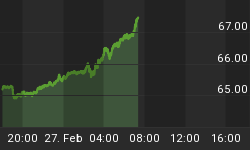Once dismissed as a "nuclear option" that would only be implored by Beijing as the last hope in the ongoing trade war with the United States, a full out ban on rare earth exports is looking increasingly likely.
China is prepared to use rare earths to strike back in a trade war with the United States, Chinese papers indicated on Wednesday in fiercely worded commentaries on a move that would intensify tensions in between the economic rivals.
The U.S. should not minimize China's ability to assert its full capacity in the trade war, People's Daily, a flagship paper of the Communist Party, said in an extensive commentary on Wednesday. It would not be a surprise if China were to utilize rare earths as a weapon as retaliation in the trade war, the paper said.
“Will rare earths become a counter weapon for China to hit back against the pressure the United States has put on for no reason at all? The answer is no mystery,” it said. “We advise the U.S. side not to underestimate the Chinese side’s ability to safeguard its development rights and interests. Don’t say we didn’t warn you!”
Rare earth producers surge
China's rare earth producers have soared in recent weeks on the notion that rare earths might be leveraged in the ongoing trade tit-for-tat between Beijing and Washington. President Xi Jinping visited a local rare earths plant just last week, with his chief trade negotiator with the U.S., raising the question on whether the vital resources might be leveraged in China's conflict with U.S. Related: Stocks Slip As Trump Ramps Up Trade Deal Rhetoric
China is the leading source of rare earths for manufacturers around the world. Unwanted side effects stemming from other trading partners are a most likely discouraging Bejing from doing so, but still, constraints on rare earth exports would be disastrous for some U.S. business.
Rare earths are mined in other parts of the world, however, for a range of circumstances, including significant natural supply in China, production quotas imposed by the Chinese government, supply chain connections and more, it has ended up with a virtual monopoly on the rare earth market.
Who loses if rare earth exports are banners?
Rare earth metals have played an intricate role in creating smaller, lighter, and more efficient computer systems, including smart gadgets and technology used on a daily basis across the world.
Tech behemoth Apple, for example, uses these metals for its cameras, cell phones, and speakers and says that the materials are difficult to recover in the recycling procedure because they appear in such small quantities in the original products.
Other American staples like Tesla, Qualcomm, NVIDIA, and Advanced Micro Devices could also face some distinct challenges if this 'nuclear option' were enacted.
By Michael Kern for Safehaven.com
More Top Reads From Safehaven.com:
















